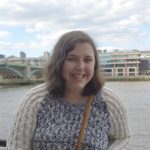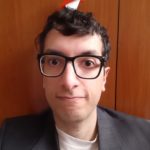Profile
Edward Ellis
-
About Me:
I’m a PhD student using AI to improve medical ultrasound imaging. I love exploring different foods, playing board games with friends and going to the gym.
-
Read more
I am 26 (nearly 27) and chose to pursue a PhD after working for 3 years in medical research. I have always been very interested in medicine and engineering, with maths being my favourite subject at school. I studied biomedical engineering in Sheffield before working in a start-up using Ultrasound to help treat cancer better. I then started my PhD in 2022
I have had a range of hobbies throughout school, university and now including: kayaking, karate, playing Clarinet, American football and going to the gym. I am scared of heights, but like to push myself so have forced myself to try rock climbing on several occasions, I am yet to conquer that fear!
-
My pronouns are:
he/him
-
My Work:
As a PhD student, my research aims to use AI methods to enhance the management of patients suffering IBD (Inflammatory Bowel Disease) using intestinal ultrasound.
-
Read more
10 million people are affected by Inflammatory Bowel Disease (IBD) globally. For the UK, £1.5 billion is spent per year by the NHS. Currently doctors often use colonoscopy to diagnose IBD which is an unpleasant imaging procedure for patients and requires great care and time from doctors to perform. Using intestinal ultrasound will allow doctors to image your bowel without this invasive procedure. However, to make this procedure effective in the clinic, research is needed to be able to standardise this procedure in clinical practice. (i.e. when we change from colonoscopy which has an established scoring system for IBD, we need to understand how to measure severity of this condition when using ultrasound instead). My job is to research using AI applied to Ultrasound to see if we can create a robust scoring system for patients with IBD. This can help reduce the amount of colonoscopies needed to perform, which is more costly and time consuming for doctors. This can help meet the high demand for patients with IBD to be monitored appropriately and also allow poorer countries to use a cheaper alternative to provide this medical care.
-
My Typical Day:
I normally like to work at university 3 days a week and at home 2 days a week.
When I go to university, I normally arrive around 9.30/10am. I have my own desk and fast computer at university so make better progress with coding when working there. My meetings are normally in the afternoons, so tend to be most productive in the mornings. I like to see my colleagues and friends in person and often have lunch on these days around 12.30 before leaving for home around 6pm.
At home, I normally start work around 9 am. I will tend to read more papers and write when working from home. I have more small breaks at home to get coffee and tea throughout the day. I will have lunch with my partner who works from home and often finish working around 5.30/6pm.
-
Read more
My work is almost all behind a computer, involving using programming language python to develop my deep learning models and test them. I spend a lot of time googling, reading research around deep learning techniques in ultrasound and medical imaging and also coding. I like to write my ideas down in my notepad and plan implementing the idea by writing it down first. When my code runs I feel happy, but then spend time thinking of ways to improve the model further. I always try to end my day by summarising the work I have achieved during the day and backing up my code to github. This ensures my work is saved and also gives me the freedom to access my code from my laptop or computer at university with ease.
-
What I'd do with the prize money:
My PhD training programme has a group focussed on engagement and outreach. We get involved in a range of public engagement at schools and with the general public already, but the money will help us reach more people to demonstrate our research. I think the money will help us make more demonstrations suited to varied audiences to make activities more engaging.
-
Education:
University of Leeds – PhD
University of Sheffield – MEng Bioengineering
Queen Elizabeth Grammar School, Wakefield – A levels
St Wilfrid’s Catholic High School, Featherstone – Secondary School GCSEs
-
Qualifications:
GCSEs: Maths, Statistics, Biology, Chemistry, Physics, English Lit/Language, Relgious Education, Geography, History, Music, Spanish, IT
A levels: Mathematics, Physics, Chemistry, AS level Biology
Integrated Masters (MEng) – Biomedical Engineering
-
Work History:
Warehouse picker/packer (summer job)
Summer research intern – Sheffield Uni
Hardware/software development engineer (3 years) – Oxford
-
Current Job:
PhD Student
-
Employer:
University of Leeds
-
My Interview
-
My favourite CHRISTMAS LECTURES memory is:
From this years lectures I liked the healthcare AI talks of course. The research of AI in diagnosing Parkinsons Disease and also using AI for monitoring babies brains in Ultrasound
What did you want to be after you left school?
I always like medicine and engineering, I didn't know exactly what I wanted to do at school, but followed the path which combined these interests the most.
Were you ever in trouble at school?
Not very often, most of the time I liked school.
What's your favourite food?
Everything, I really like Indian food the most.
If you had 3 wishes for yourself what would they be? - be honest!
get a dog, save more money, go travel
-







My Comments